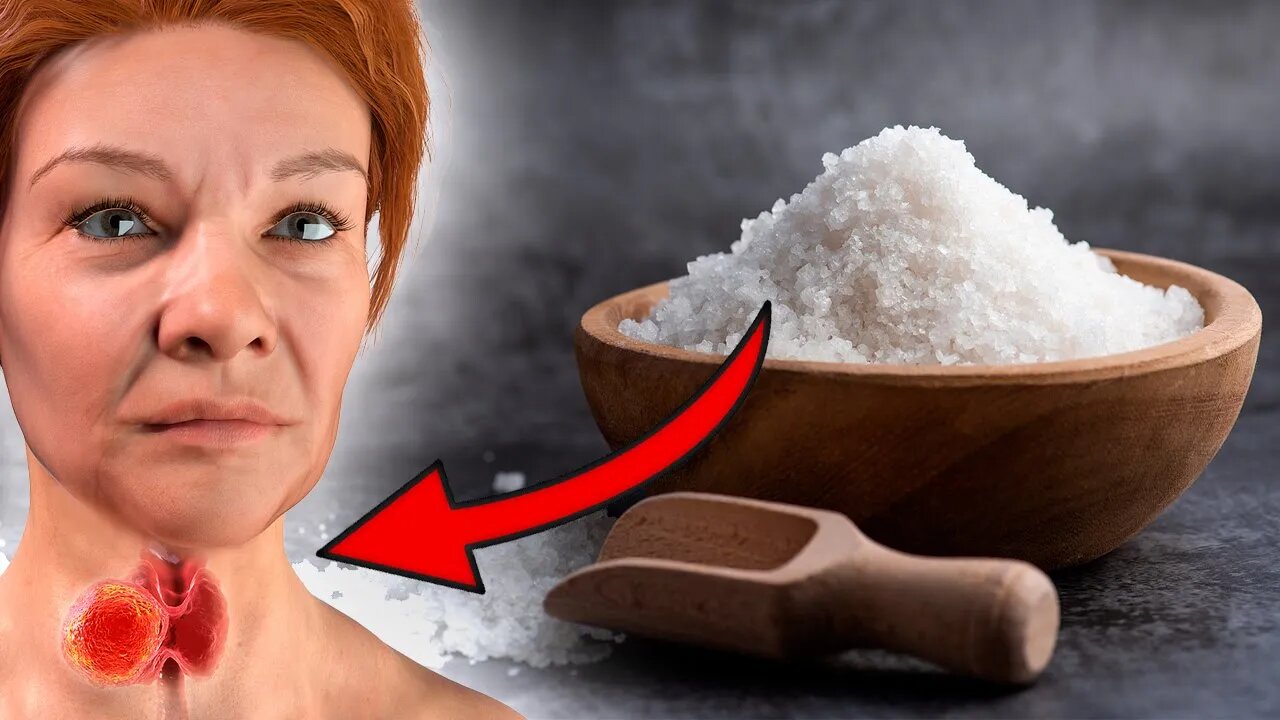Premium Only Content

Iodine Is Important and You May Not Be Getting as Much as You Think
Iodine is an essential mineral. Your body needs it to function properly but cannot make it on its own. Instead, you need to consume it.
It's a trace element, or a relatively small percentage of the body’s tissue. That means your body only needs a small amount of it.
Around 70 to 80 percent of iodine is found in the thyroid gland in the neck. The rest is in the blood, the muscles, the ovaries, and other parts of the body.
Iodine is essential for thyroid functioning. Your thyroid needs it to produce hormones essential for metabolism.
A deficiency can lead to hypothyroidism, meaning that your thyroid isn’t working as well as it should, and it can lead to issues such as fatigue, joint pain, and fertility problems.
The mineral is also important for women who are pregnant and young children, because it plays a role in proper bone and brain development.
It’s mainly present in foods such as fish, seaweed, and dairy. It’s widely available in the form of iodized salt.
It also exists in the Earth’s soil, but the content varies from one area to the next. As such, the iodine content of produce varies.
Iodine is found in foods, but amounts can be hard to identify. Iodized salt is the main source of this mineral in the United States.
Most people need to regularly use salt that is enriched with iodine in order to get enough in their diet.
This video discussews the uses and benefits of iodine and how much iodine is recommended.
It also covers what happens when you get too little or too much iodine.
0:00 Intro
0:16 The importance of iodine
0:57 Iodine benefits
1:32 Foods that are rich in iodine
2:00 Consequences of excess iodine
2:15 Iodine deficiency symptoms
#iodine #health #naturalcures
----------------------------------------
Facebook: https://bit.ly/38BWbw3
Pinterest: https://bit.ly/2Irvwa6
Disclaimer: The materials and the information contained on Natural Cures channel are provided for general and educational purposes only and do not constitute any legal, medical or other professional advice on any subject matter. These statements have not been evaluated by the FDA and are not intended to diagnose, treat or cure any disease. Always seek the advice of your physician or other qualified health provider prior to starting any new diet or treatment and with any questions you may have regarding a medical condition. If you have or suspect that you have a medical problem, promptly contact your health care provider.
-
 3:40
3:40
Natural Cures
11 months ago $0.87 earnedToothpaste Is All You Need To Keep Mice Away From Your House
3.03K3 -
 1:36:41
1:36:41
Flyover Conservatives
1 day agoThink Texas and Florida are the Best? Think Again… - Lt. Governor Matt Pinnell; Leaky Gut, Dyslexia, ADHD, Eye Connection - Dr. Troy Spurrill | FOC Show
48.7K1 -
 35:40
35:40
TheTapeLibrary
17 hours ago $3.44 earnedThe Priest Murders & The Mystery of William Toomey
30K7 -
 1:29:16
1:29:16
Adam Does Movies
7 hours ago $3.33 earnedAwful New Christmas Movies! - Dear Santa - Our Little Secret - Nutcrackers - LIVE!
31.8K -
 3:16:05
3:16:05
Nerdrotic
11 hours ago $32.06 earnedWoke Killed Comedy, Hollywood Infighting, Girlboss Rohirrim | Friday Night Tights 330 w/ It'sAGundam
122K22 -
 1:16:08
1:16:08
Edge of Wonder
9 hours agoThe Maya Worshiped Turkeys, Bizarre Thanksgiving Facts & Weird News
32.3K5 -
 1:10:47
1:10:47
Sarah Westall
10 hours agoARPANET and Who Really Invented Blockchain: Reconstructing Reality w/ Bryan Ferre
35.5K5 -
 2:08:07
2:08:07
Quite Frankly
11 hours ago"Tony Black Friday & Thanksgiving Left-Overs" 11/29/24
30.6K5 -
 1:10:05
1:10:05
2 MIKES LIVE
8 hours ago2 MIKES LIVE #149 Open Mike Friday! Special guest Lance Caroselli!
24.1K2 -
 8:03
8:03
Colion Noir
8 hours agoFacebook Just Banned Smith & Wesson, Why Gun Owners Should Care?
37.7K44